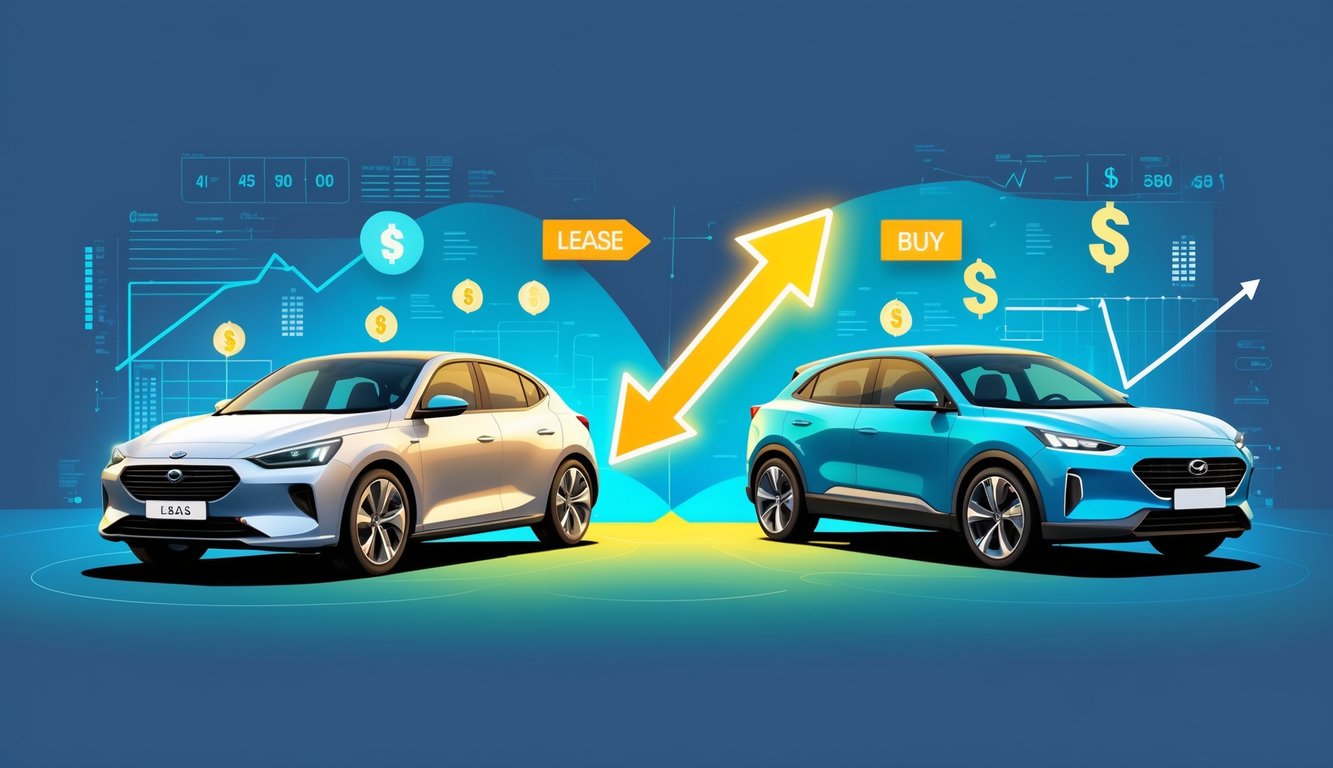
Projecting Future Trends in Car Leasing and Buying
Demand for new cars is off the rails, interest rates bounce around, and lease deals are a moving target. Try explaining to your neighbor why his two-year-old sedan is almost as expensive as a new one. Residual values are just… weird now. Wish someone had warned me.
Shifts in Residual Values and Market Offerings
Lease-end buyouts? Up 50% in two years. Industry reports spell it out. Not because people love paperwork, either. Leasing, especially for EVs, is mutating faster than I can keep up. Residual values? It’s all about the automaker’s mood and the next tech update.
EVs sound great, but depreciation is a total gamble. Lenders change incentives, add weird mileage limits, and you never know what you’re signing up for. Someone offers “always low payments,” I want to see the math—because high prices are warping everything, and nothing at the dealership feels familiar anymore.
Frequently Asked Questions
Every week, someone corners me—at a party, at the dealership, whatever—waving a spreadsheet and demanding to know if the new lease deals are a scam or some magical “smart shopper” trick. Monthly payments look low, sure, but depreciation and taxes? Don’t get me started.
What are the top considerations when deciding to lease or buy a vehicle?
Sitting in the finance office, watching the guy fumble with his calculator, I notice people forget mileage limits are brutal—1,500 miles a month disappears fast if you travel for work. Leases also sneak in wear-and-tear penalties and disposition fees—Car and Driver breaks it down.
Nobody likes to admit they’re attached to owning their car, but you see it every time someone’s lease ends and they’re suddenly sentimental about their “baby.” It’s weirdly emotional.
How do the long-term costs compare between leasing and buying a car?
My neighbor leased a hybrid, bragged about the payments for three years, then realized after all the fees, it wasn’t so cheap. Buying hurts upfront, but at least the car’s yours at the end; lease forever and you’re just paying rent, basically. Consumer Reports has the depressing math.
People lease to dodge maintenance, then get shocked three cars in when they have no equity. Finance managers never mention that until it’s too late.
Can you explain the tax implications for leasing versus purchasing a vehicle?
Dealerships act like this is classified info. Lease payments get taxed monthly, usually just on the payment. Buy a car, and—boom—sales tax on the whole thing, unless you live somewhere quirky. My accountant friend says businesses can sometimes write off lease payments, but almost nobody gets it right the first time.
I watched a guy try to deduct two cars for “gig work”—he got audited. It’s not just numbers. It’s chaos.
What financial factors should be evaluated with a lease versus buy car calculator?
I plugged everything into a NerdWallet calculator and immediately got lost. Interest rates, residuals, opportunity cost, random fees—some calculators fudge the numbers, too. You want a new car every two years? Cool, but are you budgeting for tires? Or insurance? I still don’t get the insurance part. My provider didn’t either.
Are there specific situations where leasing a car is more advantageous?
Every time someone with a long commute leases, I want to ask how they plan to avoid mileage overages. But, okay, rapid tech changes (hi, EVs), weird resale values, or if your accountant says fleet leasing is smart—sometimes, leasing is a hack. Consumer Reports covers it.
But then, someone moves states and the lease transfer rules get weird. My cousin drove around with temp plates and anxiety for two months. So, yeah—sometimes it works, sometimes it’s just stress.
How does following the 1% rule impact leasing decisions?
“One percent of MSRP is your ideal monthly payment,” or so the forums keep shouting. I mean, has literally anyone actually managed that on a crossover lately? Especially with this endless chip shortage nonsense. TheStreet’s car buying guide claims it’s a decent rule for leases, but I’m skeptical—these incentives bounce around more than my Wi-Fi signal. I end up staring at the offer sheet for an hour, calculator in hand, still convinced I’m missing some sneaky fee.
Honestly, the last time I tried to stick to this “1% or forget it” thing, I nearly walked away from a model I actually liked. Turns out, it doesn’t care if you want heated seats, or if the dealer tosses in $700 for “paint protection.” And don’t even get me started on those random fees—maintenance, disposition, whatever other surprises they invent. Or, you know, if you just wake up and suddenly want a convertible instead.
